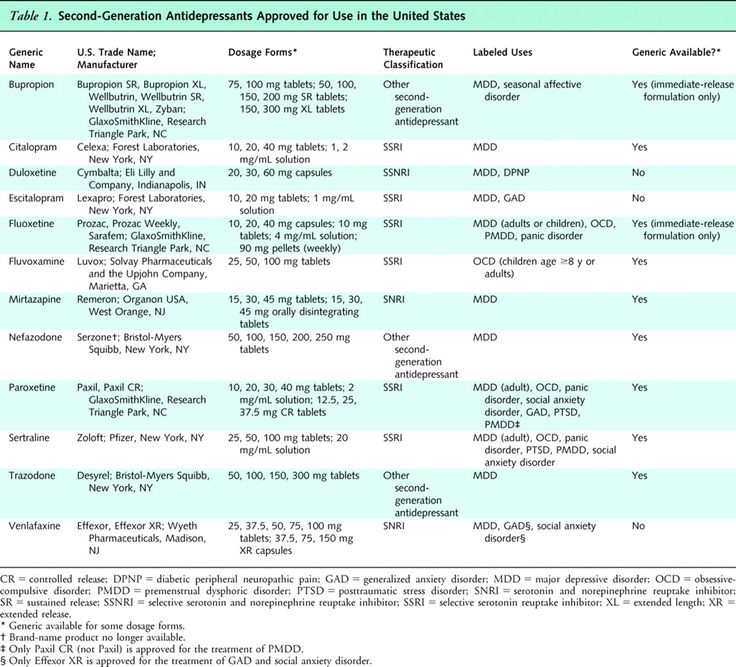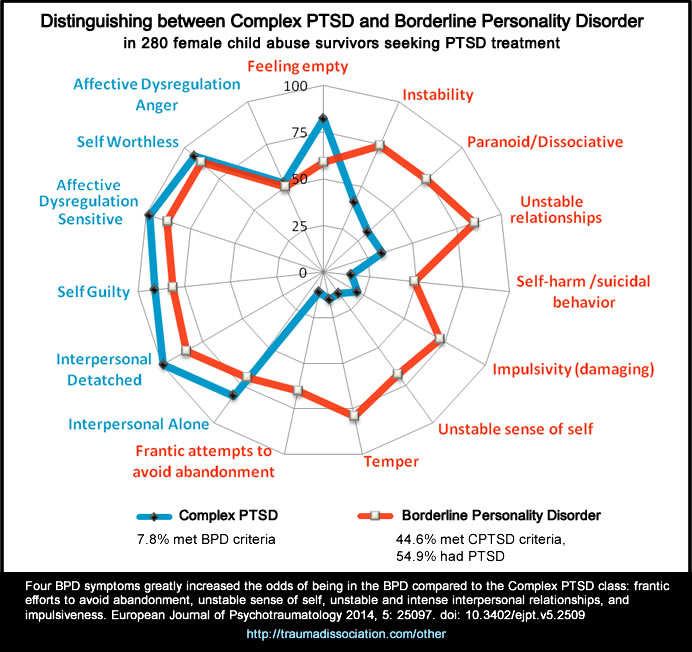Parents too involved in relationship
Are your parents too intrusive in your relationship?
In my consulting room I am often not just sitting with a couple who are experiencing difficulties in their relationship but often with a couple who metaphorically bring their parents with them to every session and spend more time talking about their relationship with them than about their own couple situation. This chronic intrusiveness by in-laws often greatly disturbs or threatens the relationship of their grown up children. Strong families are a gift but excessive parental involvement can create enormous tension and difficulties.
There can be many reasons for this:
*Talking about a parent is a distraction from addressing couple issues
*The parental attachment feels safer and more secure than the couple attachment
*Lack of emotional separation from parents
*Absence of boundaries in the couple
*A partner can feel more listened to and understood by a parent than a partner
It can be tough to understand just how difficult it can be for a partner who often feels he/she is competing with a parent for love and attention. They often become defensive and fear that they will be forced to choose between their partner and their parent.
Why do parents interfere and why do children allow this?
Entitlement
Often parents feel that because they have given birth and raised their child they have a right to have some say in their child’s life. This usually manifests as a general concern and a desire to show love and concern and well-meant advice given when needed. Unfortunately in many cases a parent role and more especially a mother’s role can extend to inappropriate behaviour and interference, which often starts with disapproval of your child’s choice of partner that continues throughout their lives.
Crossing boundaries
When parents interfere inappropriately they cross boundaries that can cause untold problems between the couple. Parents can go directly to their child’s partner behind their back to express their own opinions about something. How often do I hear in a session that a partner speaks to their parents three of four times a day? When we discuss this and suggest thinking about the meaning of this, it is often met with a lot of fear of ending the close attachment with a parent, rather than understanding that a partner may feel less important less wanted than a parent.
How often do I hear in a session that a partner speaks to their parents three of four times a day? When we discuss this and suggest thinking about the meaning of this, it is often met with a lot of fear of ending the close attachment with a parent, rather than understanding that a partner may feel less important less wanted than a parent.
Being overly attached
The professional matchmaker Susan Trombetti who runs Exclusive Matchmaking in Maryland describes the monster of all monsters is “The Mama’s Boy”. This is when his mother is often interfering and constantly sees his partner as a threat and becomes very competitive for her son’s attention, a role she has always played in his life since childhood.
Parental problems
If either parent are having their own individual difficulties or problems in their own relationships, this can often be more demanding on their children who might feel they need to be there more for their parents than their partners.
Money
Money is a big way that parents can interfere. If they are generous with money or offer to help out with money it can feel as they have control over your relationship and can seriously affect the balance of power between the couple and lead to long term resentments.
Visits
Parents often don’t realise how important quality time is for a couple and often parents over involvement, wanting to see you on a regular basis, turning up for an unplanned visit, expecting to go away together can be intrusive and frustrating for any couple to manage. Its not unusual to hear in therapy sessions, often years later, just how damaging a parents continual presence after a birth of a baby can be for the couple.
What can a couple do?
Helping a couple to understand the impact that their over involved parents have on their relationship is not always easy as often its not something parents recognise that they are doing anything wrong.
What counts is how you as a couple handle it. Here are some suggestions:
- Supporting each other in maintaining stricter boundaries: Where your parents involvement starts and finishes
- Don’t always defend your parents behaviour But be more understanding of how their behaviour might have affected your partner
- Try not to excessively complain about your in-laws. Holding a wise tongue is often preferable
- Be adult and tell them to take a step back Decision making and planning is your responsibility not theirs. You are setting your own agendas and sometimes it may not be to their liking.
- Make time to see your own parents on your own as well as with your partner.
- Your partner should be your go to person not your parent
- Your partner needs to feel prioritised over a parent
- Consult with your partner before consulting with your parents
- Don’t over-share with your parents.
 Sharing fewer details with your parents will keep them less involved.
Sharing fewer details with your parents will keep them less involved. - Don’t let parent’s pressurise/manipulate you into prioritising them over your relationship.
By putting your partner first, understanding his or her feelings and standing up to parents in order to set boundaries and protect the relationship, you are more likely to have a more successful intimate relationship.
Dawn Kaffel
Tweet
Sneaky Ways Your Partner's Parents Can Affect Your Relationship
Shutterstock
By Taylor Markarian/Updated: Aug. 11, 2020 2:49 pm EDT
When it comes to dating, there are a lot of things that can go wrong. But sometimes it's not what you're doing that's causing problems in your relationship, it's the parents. Whether yours or your partner's, parents can certainly have a way of butting in where they shouldn't and can turn your relationship sour.
But sometimes it's not what you're doing that's causing problems in your relationship, it's the parents. Whether yours or your partner's, parents can certainly have a way of butting in where they shouldn't and can turn your relationship sour.
To get the scoop on what kind of meddling behavior to watch out for from mom and dad, I interviewed noted psychologist Dr. Ben Michaelis, who has been featured in magazines like Women's Health, The Washington Post and Parents and professional matchmaker Susan Trombetti, who runs Exclusive Matchmaking in Maryland and has written features in Cosmopolitan and Shape.
Between these two experts, there's a lot of expert advice that you need to pay attention to if you want to save your relationship from parental interference.
The models of love they give
Shutterstock
Parents shape their children's future love lives from the very beginning. The way you're raised and the environment in which you grow up influence the way you perceive, feel, and give love.
The way you're raised and the environment in which you grow up influence the way you perceive, feel, and give love.
"We learn about love from our parents," Dr. Michaelis said. "It's part of the authority that parents get. Whether we move towards the model of love that our parents provide for us or we move away from it, it's still their model that we base our assumptions on."
Dr. Michaelis gave me two examples of how parents' love models have affected some of his patients. In one case, a young woman had been taught by her mother to think that she should always have a man in her life. This caused her to continuously be in relationships, even if they weren't healthy. In another scenario, a young woman was spoiled with gifts from her father as a child and expected her current partner to show his love the same way. Of course, that's not how the boyfriend felt, and it nearly destroyed the partnership. So the lesson here is that while you can't change how your parents affected you as a child, you can be aware of it and decide how you act as an adult to maintain a healthy, strong relationship.
Crossing boundaries and lines of communication
Shutterstock
A major way that parents interfere in their adult child's relationship is by crossing boundaries and appropriate lines of communication, like reaching out directly to their child's partner to give their two cents about how the relationship, or even getting other family members involved.
Dr. Michaelis remarked, "Any time a parent reaches out to their kid's partner or their kid's partner's family, there's boundaries being crossed. It's very dangerous once you do that. If they have any concerns about the relationship they should be taking it to their child, not to their child's boyfriend or girlfriend." According to Dr. Michaelis, some parents will even go to their kid's siblings to get them to try and reinforce their disapproval of the relationship.
While it is completely normal for a parent to give their child relationship advice, it isn't right to go any further. A romantic relationship is for the people in that relationship to work on, not their parents. A parent might even mean well by doing this, but it is still detrimental and cause for awkwardness. If you feel your partner's parents are too hands on, don't be afraid to talk to your partner about it. If you don't, it'll just keep happening.
A romantic relationship is for the people in that relationship to work on, not their parents. A parent might even mean well by doing this, but it is still detrimental and cause for awkwardness. If you feel your partner's parents are too hands on, don't be afraid to talk to your partner about it. If you don't, it'll just keep happening.
Being overly attached
Shutterstock
The monster of all monsters is "The Mama's Boy." At least, that's what professional matchmaker Trombetti had to say from her experience working with couples. And let's be real, anyone who has been in a relationship with someone like this knows how awful it can be. To be clear, it's not bad for a man or woman to love or interact with their mother, but it is when the bond is a little too strong; one can even say aggressive.
"The worst way [to interfere] is when they're a mama's boy and the mom is just competing with the girlfriend," Trombetti said. "When you're the girl and [his] mom's interfering, she wants to be the confidant to him. Instead of encouraging him to go to you and build that relationship... she sees you as a threat."
"When you're the girl and [his] mom's interfering, she wants to be the confidant to him. Instead of encouraging him to go to you and build that relationship... she sees you as a threat."
When the mom interferes to this extent, it's not only intrusive but it's majorly creepy. "I've seen mothers that I think if they could crawl in bed and have sex with their son they would," Trombetti stated. "It's ridiculous, they're so competitive." And it isn't just reserved for men and their mothers. This kind of over-involvement and over-attachment can also happen with women and their fathers. The result is a weird and angering experience that will eventually break up the relationship.
Forcing family expectations on your partner
Shutterstock
If your partner comes from a different culture than you do or their parents are very strict about their family lifestyle and expectations, your relationship may be doomed from the start. Dr. Michaelis said, "A lot of times, I see this particularly when younger folks are involved with people outside their parents' group... people outside of their socioeconomic class, different race, different religion."
Dr. Michaelis said, "A lot of times, I see this particularly when younger folks are involved with people outside their parents' group... people outside of their socioeconomic class, different race, different religion."
Yes, it is racist, classist, and prejudicial, but the families don't necessarily see it that way. They see it as preserving their beliefs. For example, Indian parents tend to be very firm about their children marrying another Indian, or at least doubtful of them marrying someone who isn't Indian. Similarly, Jewish parents may also insist on their child marrying another Jew. These are just a few examples.
Some families never come around to the idea of their child dating outside their group and the child in question gives in to their will. However, that's not to say that intercultural relationships can't succeed. It just may be a trying experience for the family and their child's partner to get used to each other. But either way, if your partner's family utterly disapproves of you from the get go, they will be sure to let your partner know and on a pretty frequent basis. The question is, can you handle that?
The question is, can you handle that?
Pushing their problems on their kids
Shutterstock
When a person's parents are having marital problems, it can be hard on them in many ways, including their romantic relationships. Watching a marriage dissolve can give a person a cynical outlook on their own love lives.
"[Divorce] can influence them in terms of the parent saying, 'You should avoid people like your father,' [and] making stereotypes in that regard," Dr. Michaelis told me. "It's really important for parents to know their issues so they don't put them on their own kids." Even if it's not divorce, parents can still push their problems on to their kids and harm relationships. If at least one of the parents has a drinking or drug problem, that will no doubt cause stress and emotional issues. Your partner might feel like they need to be there more for their parents than they are for you.
When things like these happen, your partner has to be able to figure out a way to find balance in their life and separate it from those of their parents. This isn't to say that they have to abandon their family, but they have to be able to distinguish the difference between their parents' relationship and their own relationship. Just because your parents may be dysfunctional, doesn't mean that your relationship has to be.
This isn't to say that they have to abandon their family, but they have to be able to distinguish the difference between their parents' relationship and their own relationship. Just because your parents may be dysfunctional, doesn't mean that your relationship has to be.
Manipulating you with money
Shutterstock
Money can be a huge factor in a romantic relationship. Not making enough money and struggling with finances can put a lot of pressure on people. But money can also cause problems for your relationship when parents get involved. For instance, if your partner's parents keep giving them (and by extension, you) money to fall back on, they can have control over your relationship in other ways, too.
"Money is a big way parents interfere," said Dr. Michaelis, "and they don't always do that maliciously either. But sometimes they do. They give you the money and they say, 'As long as I'm supporting you, this is what you're going to do. '" Financial interference can lead to other kinds of interference that impact your lifestyle as a couple. It can put you on puppet strings that pull at your partner's parents' every beck and call.
'" Financial interference can lead to other kinds of interference that impact your lifestyle as a couple. It can put you on puppet strings that pull at your partner's parents' every beck and call.
The quickest and best solution to this problem is to find a way to adequately support yourselves without parental help. There are a lot of ways in which a person needs to be independent to make a romantic relationship work, and financial independence is one of them. You don't want to be in the position where you're indebted to your potential in-laws. Self-sufficiency is key.
Making special occasions difficult
Shutterstock
Despite the joy they are supposed to bring, holidays can be some of the roughest days of the year. Spending the entire day with your whole family can be exhausting on its own, but holidays can cause problems in relationships as well. You may feel like you should spend the holidays with your significant other, but their family may be hellbent on having your partner all to themselves.
"They can interfere in holiday dinners and pull your significant other to be with them and not bring you, and really you might feel like you should be sharing in that time," Trombetti explained. For a growing couple, holidays are occasions that foster bonding. But when a couple is separated, they are denied that opportunity.
Spending time with each other's families is only natural as a couple becomes more involved, and if your partner's parents are trying to prevent that it's a big warning sign. It means they don't approve of you or don't consider you enough of a factor to be engaged in family activities. This can definitely create tension and spark arguments with your partner.
Showing up frequently
Shutterstock
Couples need time alone together to be able to foster their relationship. However, this quality time can get interrupted when parents decide to make a nuisance of themselves. If you live together, for example, your partner's mother might start bringing food to your place every few days or their father might show up unannounced to fix a leaky sink he saw last time he came by. Somehow, you just can't seem to get rid of them.
Somehow, you just can't seem to get rid of them.
"They can show up at odd times," Trombetti said. "They can show up during quality time which is really preventing the bonding."
So why do parents do this? According to Trombetti it's because they're overprotective and feel the need to hover. They could want to observe your relationship, or they could want to prevent certain things from happening in your relationship, like frequent sex. Whatever their reason for hanging around, it is intrusive and can be extremely frustrating. Not feeling like you have enough freedom can be suffocating, and that can be enough to make you want to call it quits.
Sometimes it's unconscious
Shutterstock
Before you start to hate your partner's parents too much, take a moment to consider that they might not even realize how troublesome they're being. They might just be doing what they think is right or normal. Some families operate on hyper-involvement while some give each other more space.
"They don't even mean sometimes to be so dysfunctional and cause trouble," Trombetti told me, even admitting that sometimes she wants to interfere in her own kid's love lives. For some parents, it's more of a knee-jerk reaction than a malicious plot.
It's not just your partner's parents, either. Your partner can be very used to their parents' involvement in every aspect of their lives and might not even realize that it's a problem for you as a couple. Trombetti explained, "[Your partner] can't be committed [to you] because they're committed to their mom, and sometimes they don't even realize that this is strange behavior because it's their norm." So what seems weird or harmful to you might not even cross your partner's mind as something strange or problematic.
What to do about it
Shutterstock
Recognizing these problems is only half the battle. What really counts is how you as a couple handle it. Both Trombetti and Dr. Michaelis told me that the solution to any of these issues is for both partners to learn to become more independent.
Both Trombetti and Dr. Michaelis told me that the solution to any of these issues is for both partners to learn to become more independent.
"Young adults especially need to be autonomous," Dr. Michaelis said. "They need to go out and try things in the world and also make mistakes." Part of being autonomous is learning how to establish and maintain boundaries in life; knowing where your parents' involvement begins and ends. "Healthy boundaries within families make for better relationships for their children going forward," Dr. Michaelis continued. "That's something that I constantly advocate, is healthy boundaries."
Trombetti offered some useful questions you should be asking to evaluate your relationship, such as have they stopped calling mama and daddy for every little thing? Are you the first person they call for advice or tell their good news to? Trombetti suggests that if the answer to these questions is a resounding no, then you've got a lot of work to do to get the relationship where it needs to be. If your partner is able to slowly but surely take steps toward independence—steps away from their parents and toward you—then the relationship can be saved. If not, it looks like mom and dad are keeping them after all!
If your partner is able to slowly but surely take steps toward independence—steps away from their parents and toward you—then the relationship can be saved. If not, it looks like mom and dad are keeping them after all!
Recommended
How parents influence personal life - psychological center, psychotherapist's help, psychologist's consultation
Journalist and practicing psychologist, specialist of the center Tatyana Ogneva-Salvoni wrote a series of articles about how childhood affects adult life for people who are far from psychotherapy.
How parents influence personal life. Part 1. Mom
- Everything will definitely not be the same for me as for my parents! - said Alena, whose father was a tyrant, and her mother was his eternal victim. And Alena, when she grew up, began to do everything “differently”, not like her mother. With the guys she was militant "don't put your finger in your mouth", proud and independent. She built a career and cut ties at any hint of disrespect. But the relationship didn't go well. Those with whom she fell in love without memory did not reciprocate. And those who liked her, did not like her. At 27, she married the man of her dreams, whom she could not breathe. And at 29decided to divorce. - I suddenly realized that I remind myself of my mother. Only Kostya and I are still worse than our parents. You can't get an indulgence from family history, no matter how hard you try. You can only come to terms with it, work it out, realize it ... And only then will you be able to go your own way. And while you are involved in relationships with parents or between parents, these cruel laws will work, you will be their hostage.
But the relationship didn't go well. Those with whom she fell in love without memory did not reciprocate. And those who liked her, did not like her. At 27, she married the man of her dreams, whom she could not breathe. And at 29decided to divorce. - I suddenly realized that I remind myself of my mother. Only Kostya and I are still worse than our parents. You can't get an indulgence from family history, no matter how hard you try. You can only come to terms with it, work it out, realize it ... And only then will you be able to go your own way. And while you are involved in relationships with parents or between parents, these cruel laws will work, you will be their hostage.
How mother influences
Mother is the beginning of everything. The American psychologist Irvin Yalom even wrote a whole book called "Mommy and the Meaning of Life", where he says that only for the attention and love of his mother he became a famous person and wrote all his books. Let's make it clear right away that there are no good and bad mothers.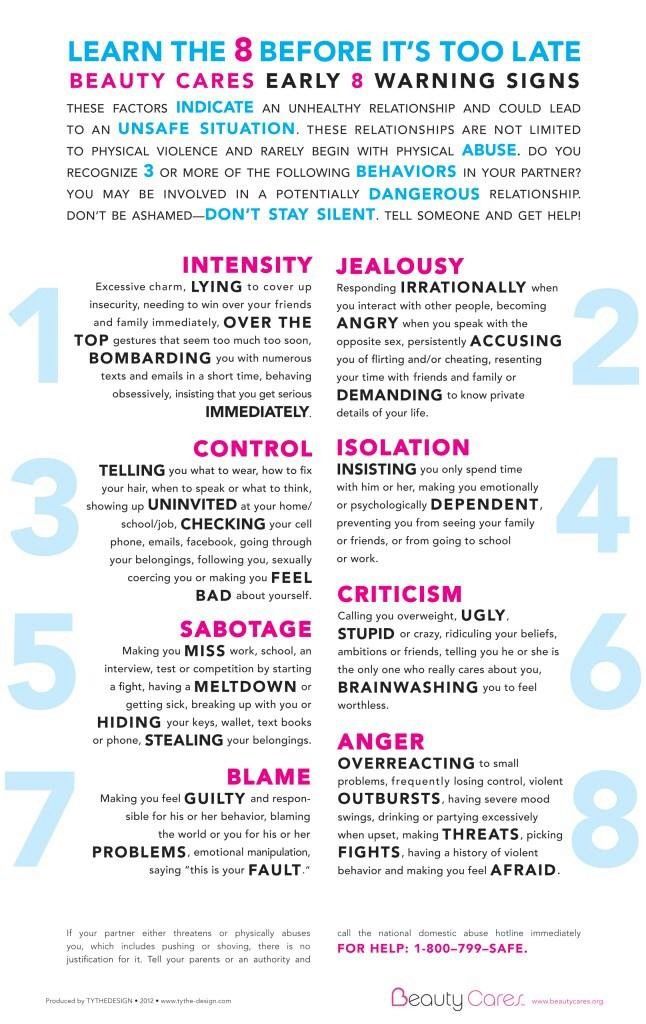 Instinctively, all mothers would like to be the best and give their baby everything. But the mother herself may be so influenced by family history that she does not realize how much harm. Here are three of the most common negative impact situations.
Instinctively, all mothers would like to be the best and give their baby everything. But the mother herself may be so influenced by family history that she does not realize how much harm. Here are three of the most common negative impact situations.
Situation:
If the mother often left the child in the care of grandmothers-nannies, or sent her to kindergarten very early. If for misconduct and pranks she beat, scolded and put in a corner, and did not explain humanly what was happening. If she was more busy with her work or sorting out relations with her father than raising a child. If she was inconsistent, then too tender and affectionate, then cold and strict without explanation. If the child was periodically left alone, he screamed and called for his mother, but she did not go. If there were several children in the family, and the mother did not have enough time and energy for this baby.
Consequences for the child:
Then, in adult life, everything is divided only into black and white, in his head there are continuous extremes and stereotypes like: people are either bad or good; you can have everything or nothing; either love without a mind, or hate, etc. For example, a classic of the genre. For a girl with such a mother, a man always first has an ideal and the best person in the world to whom everything can be forgiven, and then abruptly - the main bastard of all time of peoples, only a serial killer is worse than him. The guy first falls in love with a bitch in order to remake her, ready to give her everything, and then rolls out a list of claims to her in bitchiness. In psychology, this is called narcissistic trauma. The fact is that up to three years a person develops the ability to love, make friends, trust, experience a sense of happiness. And if childhood is oversaturated with negative experiences of abandonment, guilt, feeling unloved, then it is difficult to build healthy relationships later. After all, even in early childhood, he got used to mental pain. Subconsciously, only those who are full of despair seem normal. And he chooses partners accordingly in order to suffer as much as possible. And the claims to the partner are actually childish claims to the mother.
For example, a classic of the genre. For a girl with such a mother, a man always first has an ideal and the best person in the world to whom everything can be forgiven, and then abruptly - the main bastard of all time of peoples, only a serial killer is worse than him. The guy first falls in love with a bitch in order to remake her, ready to give her everything, and then rolls out a list of claims to her in bitchiness. In psychology, this is called narcissistic trauma. The fact is that up to three years a person develops the ability to love, make friends, trust, experience a sense of happiness. And if childhood is oversaturated with negative experiences of abandonment, guilt, feeling unloved, then it is difficult to build healthy relationships later. After all, even in early childhood, he got used to mental pain. Subconsciously, only those who are full of despair seem normal. And he chooses partners accordingly in order to suffer as much as possible. And the claims to the partner are actually childish claims to the mother.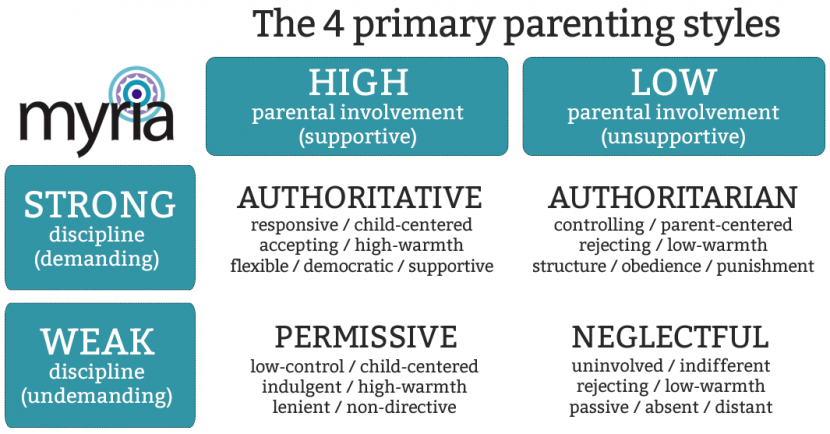
Situation:
The mother, unwittingly, drew the child into her relationship with the father. What is it expressed in? It happens that mothers complain to the child about the father, or ask for advice, like, the mouth of the baby speaks the truth. They are asked to judge who is right and who is not. And a small child turns for a mother into a free psychologist, arbitrator, vest for tears, and even a defender and an instrument of justice. The child is deprived of childhood, as it becomes the third participant in the personal life of the parents. An unbearable responsibility is placed on him - to decide for adults.
Consequences for the child:
In the future, he begins to disregard his personal life. And often, in fact, he continues to do the same things that he used to do in childhood - namely: to judge others, to stroke the head, to help build other people's families, to get into the affairs of girlfriends / friends, and so on. Such a girl, for example, is a good friend and adviser to everyone. He only thinks of himself last. In general, her own personal life seems not as important as someone else's. You yourself don’t understand that on a personal front, but for hours your girlfriends teach life on the phone. Moreover, often the child copies the fate of the parent against whom they set him up and whom he possibly still blames. But in the depths of a child's soul, we love both parents equally. And unconsciously copying the behavior of the "bad" parent, so we pay tribute to him. I knew a man who, as a child, often defended his mother from his alcoholic father. When he grew up, he forced his mother to divorce him. Now this guy is in his forties, he takes care of his single mother. He has not seen his father for a long time and speaks of him with indignation. What pissed him off the most was that his father drank. The man himself did his best to justify his mother's hopes, so he studied well, made a wonderful career and makes great money. He created a family late, at 35, a daughter was born.
He only thinks of himself last. In general, her own personal life seems not as important as someone else's. You yourself don’t understand that on a personal front, but for hours your girlfriends teach life on the phone. Moreover, often the child copies the fate of the parent against whom they set him up and whom he possibly still blames. But in the depths of a child's soul, we love both parents equally. And unconsciously copying the behavior of the "bad" parent, so we pay tribute to him. I knew a man who, as a child, often defended his mother from his alcoholic father. When he grew up, he forced his mother to divorce him. Now this guy is in his forties, he takes care of his single mother. He has not seen his father for a long time and speaks of him with indignation. What pissed him off the most was that his father drank. The man himself did his best to justify his mother's hopes, so he studied well, made a wonderful career and makes great money. He created a family late, at 35, a daughter was born. But the relationship with his wife is very cool, and on weekends the “excellent” worker always goes to a nightclub, where he relaxes with casual relationships and cocaine, which is certainly much worse than alcohol. Another such "mother's protector" also succeeded in business (mother wanted it!). Married a stripper who got pregnant. And he really wanted an heir (read: mom wanted a grandson). His wife, according to him, is a rare vixen, he divorced her. However, she can be understood, because he did not remain faithful to her for a single day. Now his mother lives in his house, and he meets women mainly for money. So it's easier for everyone. Girls, on the other hand, often transfer their mother's attitude towards their father to all men. And they make it worse! The more negatively it is colored, the more difficult it is for her to live “with these goats” in general. A friend of mine says that you can’t feel sorry for the peasants, but you just need to use them. Because her dad, as it seems to her, did not feel sorry for her mother at all.
But the relationship with his wife is very cool, and on weekends the “excellent” worker always goes to a nightclub, where he relaxes with casual relationships and cocaine, which is certainly much worse than alcohol. Another such "mother's protector" also succeeded in business (mother wanted it!). Married a stripper who got pregnant. And he really wanted an heir (read: mom wanted a grandson). His wife, according to him, is a rare vixen, he divorced her. However, she can be understood, because he did not remain faithful to her for a single day. Now his mother lives in his house, and he meets women mainly for money. So it's easier for everyone. Girls, on the other hand, often transfer their mother's attitude towards their father to all men. And they make it worse! The more negatively it is colored, the more difficult it is for her to live “with these goats” in general. A friend of mine says that you can’t feel sorry for the peasants, but you just need to use them. Because her dad, as it seems to her, did not feel sorry for her mother at all.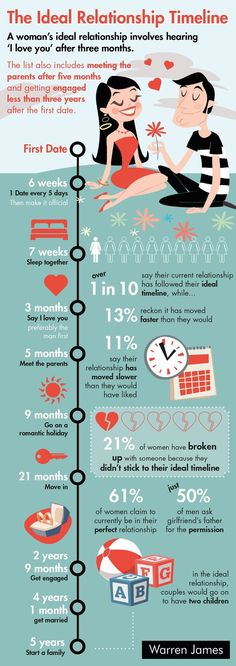
Situation:
My mother's life was hard and she suffered a lot. Or was single, raised a child without a husband. And if there is also a grandmother who was unhappy in family life, everything becomes very complicated.
Consequences for the child:
The daughter of such a mother is prevented from building her happy life by an underlying feeling of guilt and embarrassment in front of her parent. In solidarity with her family history, she chooses the most difficult and destructive relationships for the most unsuitable men. Or even refuses relationships with the opposite sex. Often, she also becomes a single mother, because she is mentally ready for this, and "the child is the main thing." The boy has two paths to extremes. Or he becomes a homosexual, with a string of unfortunate scary love stories. Because there was no male example before my eyes. Or, on the contrary, it turns into a very courageous person, as if from a mother's fantasies, who is overly sensitive to women's suffering. He often chooses such a profession for himself to help women. You can marry not for love, but to make life easier for a particular woman, out of pity for her. At the same time, the guy is also latently looking for a reason to suffer once again. But still, the main aspiration of life is to help women at all costs. And everything would be fine, but relations develop only as long as there is something to help and from what to save. And as soon as he finally saved, he immediately finds a new “unfortunate” to make happy. At the same time, he does not think at all about his own happiness. His life is often full of disappointments, because the saved are in no hurry to give thanks. And he feels used, but continues to step on the same rake. A common feature of children who grew up without a father or with minimal participation of a father is an acute, painful reaction to the archetypal figures of the Father in society - government, the church, any structure built according to a rigid hierarchy, for example, large business companies, a prison.
He often chooses such a profession for himself to help women. You can marry not for love, but to make life easier for a particular woman, out of pity for her. At the same time, the guy is also latently looking for a reason to suffer once again. But still, the main aspiration of life is to help women at all costs. And everything would be fine, but relations develop only as long as there is something to help and from what to save. And as soon as he finally saved, he immediately finds a new “unfortunate” to make happy. At the same time, he does not think at all about his own happiness. His life is often full of disappointments, because the saved are in no hurry to give thanks. And he feels used, but continues to step on the same rake. A common feature of children who grew up without a father or with minimal participation of a father is an acute, painful reaction to the archetypal figures of the Father in society - government, the church, any structure built according to a rigid hierarchy, for example, large business companies, a prison. They are desperately attracted to these structures, they ardently criticize them or enter into a fight with them, but in all this there is an elementary childish resentment "where were you when I needed you so much." However, about the influence of the figure of the Father in the next publication.
They are desperately attracted to these structures, they ardently criticize them or enter into a fight with them, but in all this there is an elementary childish resentment "where were you when I needed you so much." However, about the influence of the figure of the Father in the next publication.
How do parents influence personal life? Part 2. Dad
Father is the rules. This is the norm. This is form.
The father teaches both sons and daughters how to behave with the other sex. As a girl communicates with her father, so then she will communicate with men. She is training on her father from the very beginning. And he is subconsciously for her - a model of a man. Even if she doesn’t like something about him and she says that she will never be with someone like dad. It will be, and how! It will just be a disguised copy of the pope. And any guy will eventually begin to behave with her as dad did. Now, if, for example, her father was too strict, demanding and tough, she chooses just that. Paradoxically, after a while, next to her, even the softest man will begin to show rigidity. A boy learns how to relate to women by looking at how his father treats his mother. If the father did not put his mother in anything, then the boy will spit from the high bell tower on women's tears. Of women, he will only pity and love his mother, moreover, as a son trying to become an ideal man for her. That is, everything is not simple. From the father to the child comes the concept of strength and weakness. If the child saw that the father was not strong enough to protect and provide for the family, he was angry with him. And strives to become stronger. And only God knows how the concept of power will be interpreted in the head of a young man. And in what direction will he direct these forces - in a positive or in a negative direction. A person with the feeling that he had a strong father feels secure and calm. It makes no sense for him to assert himself, therefore it is easier to build relationships with both women and men, even with aliens.
Paradoxically, after a while, next to her, even the softest man will begin to show rigidity. A boy learns how to relate to women by looking at how his father treats his mother. If the father did not put his mother in anything, then the boy will spit from the high bell tower on women's tears. Of women, he will only pity and love his mother, moreover, as a son trying to become an ideal man for her. That is, everything is not simple. From the father to the child comes the concept of strength and weakness. If the child saw that the father was not strong enough to protect and provide for the family, he was angry with him. And strives to become stronger. And only God knows how the concept of power will be interpreted in the head of a young man. And in what direction will he direct these forces - in a positive or in a negative direction. A person with the feeling that he had a strong father feels secure and calm. It makes no sense for him to assert himself, therefore it is easier to build relationships with both women and men, even with aliens. This, by the way, is a signal for women to give their husbands more often to show their masculine strength and intelligence. So that the children believe: my dad can do anything! Here are three common negative dad influence situations.
This, by the way, is a signal for women to give their husbands more often to show their masculine strength and intelligence. So that the children believe: my dad can do anything! Here are three common negative dad influence situations.
Situation:
If a child had to cry a lot because of his father, if he often offended him, he did not listen. If you have accumulated a lot of unspoken and not cried children's grievances against his father. If the father hurt, punished, showed cruelty.
Consequences for the child:
The girl, having matured, chooses those who can offend her harder as her companions. For some of them, the meaning of life turns into a retelling of stories about how “I was offended, there is injustice all around, and normal men have degenerated.” And also, do you know that in many ways the relationship with the father is then transferred to the relationship with the boss? The child, who was often offended by his father, in the future all the time is not "lucky" with the bosses. I have such a friend, listen to her, so someone constantly infringes on her rights and interferes with her life. By the way, she makes great jokes on this topic and any other “sick” from her life. Offended children generally have a very good sense of humor. After all, laughter is a protective reaction to pain. They make good satirists and writers. This is how they cope with their childhood traumas. The boy of an unkind dad then either offends others just as easily, or is very afraid to offend and therefore, instead of explaining, he can disappear and generally keep in suspense. Let people guess for themselves. But most often it seems like two people are hidden in it - good and evil. And he himself does not always give an account of why he behaved this way and not otherwise.
I have such a friend, listen to her, so someone constantly infringes on her rights and interferes with her life. By the way, she makes great jokes on this topic and any other “sick” from her life. Offended children generally have a very good sense of humor. After all, laughter is a protective reaction to pain. They make good satirists and writers. This is how they cope with their childhood traumas. The boy of an unkind dad then either offends others just as easily, or is very afraid to offend and therefore, instead of explaining, he can disappear and generally keep in suspense. Let people guess for themselves. But most often it seems like two people are hidden in it - good and evil. And he himself does not always give an account of why he behaved this way and not otherwise.
Situation:
If the father was not emotional, did not tell the child about his love, did not play with him, did not show fatherly protection.
Consequences for the child:
When a daughter grows up, she begins to fall in love either with men who are indifferent to her, or with other people's husbands. Her relationship type is love addiction. The one who had such a dad, then begins to seek a man in every possible way, directly peck him like a woodpecker. And he is wildly attractive to her until she reciprocates. And then suddenly all the passion blows away like the wind. And for a boy, not showing emotions becomes synonymous with strength. Saying "I love you" is like losing to an obviously weak opponent. And he is often tormented by a choice: he seems to be drawn to a passionate and sincerely loving woman, but he feels safer with a portraying indifference and two-faced. He is afraid of strong feelings and if he falls in love, he hides as long as possible, or even hopes to cool down over time and become “normal” again.
Her relationship type is love addiction. The one who had such a dad, then begins to seek a man in every possible way, directly peck him like a woodpecker. And he is wildly attractive to her until she reciprocates. And then suddenly all the passion blows away like the wind. And for a boy, not showing emotions becomes synonymous with strength. Saying "I love you" is like losing to an obviously weak opponent. And he is often tormented by a choice: he seems to be drawn to a passionate and sincerely loving woman, but he feels safer with a portraying indifference and two-faced. He is afraid of strong feelings and if he falls in love, he hides as long as possible, or even hopes to cool down over time and become “normal” again.
Situation: The children rarely saw their father. Or it was a weekend dad and he had another family. Or he was consumed by a romance on the side. He could give a lot of emotions to the child, but he was often simply not there physically.
Consequences for the child:
Girls from this family are often mentally prepared to become constant mistresses in the worst case scenario. At best, they are not afraid of long-distance relationships, guest marriages. It's good when it just results in a marriage with a long-distance sailor. If dad had a mistress, then for a daughter, a man's polygamy is the norm. She will even justify him and is always ready to joke on this topic. Although, in fact, lovers are turned on either from promiscuity, when parents did not define the moral boundaries of what is permissible, or because of a complex psychological problem of a man in a relationship with his mother. When he married the one who continued to play the role of mother, and then matured to a relationship with a woman. And now he begins to rush about - he loves that one, and this one, but with a different love. Love is not an accident. Only a woman with low self-esteem and fear of suddenly being left without male support will agree to this role. If the father did not love the mother and maintained the appearance of marriage for the sake of the children, the mother begins to compete with her daughter for the father's love.
At best, they are not afraid of long-distance relationships, guest marriages. It's good when it just results in a marriage with a long-distance sailor. If dad had a mistress, then for a daughter, a man's polygamy is the norm. She will even justify him and is always ready to joke on this topic. Although, in fact, lovers are turned on either from promiscuity, when parents did not define the moral boundaries of what is permissible, or because of a complex psychological problem of a man in a relationship with his mother. When he married the one who continued to play the role of mother, and then matured to a relationship with a woman. And now he begins to rush about - he loves that one, and this one, but with a different love. Love is not an accident. Only a woman with low self-esteem and fear of suddenly being left without male support will agree to this role. If the father did not love the mother and maintained the appearance of marriage for the sake of the children, the mother begins to compete with her daughter for the father's love. And the daughter automatically competes with the mother. From childhood, a girl gets used to fighting with another woman for the attention of a man. And she can no longer imagine her personal life without this struggle. Married, she plagues her husband with suspicions of infidelity, as if she herself wants it. And if you suddenly manage to catch the missus, life immediately begins to play with new exciting colors ... But the boys, by the way, can go from the opposite. Like, the father was not enough, so I will be a good father. But at the same time, he may not create a family for a very long time, for the reason that he simply does not know how this is done. From the negative: he can easily copy his father's lifestyle, live with two families, or even decide to become a playboy and perceive relationships as just entertainment, nothing serious. By the way, Daddy's daughters, favorites of fathers, it would seem, should not have any problems. But in life, these girls quickly jump out to marry .
And the daughter automatically competes with the mother. From childhood, a girl gets used to fighting with another woman for the attention of a man. And she can no longer imagine her personal life without this struggle. Married, she plagues her husband with suspicions of infidelity, as if she herself wants it. And if you suddenly manage to catch the missus, life immediately begins to play with new exciting colors ... But the boys, by the way, can go from the opposite. Like, the father was not enough, so I will be a good father. But at the same time, he may not create a family for a very long time, for the reason that he simply does not know how this is done. From the negative: he can easily copy his father's lifestyle, live with two families, or even decide to become a playboy and perceive relationships as just entertainment, nothing serious. By the way, Daddy's daughters, favorites of fathers, it would seem, should not have any problems. But in life, these girls quickly jump out to marry . .. mother's favorites. Because they have each other's complement. But after a while, a mutual squeamish attitude towards each other begins. And ping-pong-type quarrels: “Yes, you are so-and-so” - “And you are so-and-so.” And everything is simple - he lacks femininity in her (like his mother), and she lacks masculinity in him (like her dad). And the result is a divorce. That's right, if the daughter was mother's favorite, and the son was father's favorite.
.. mother's favorites. Because they have each other's complement. But after a while, a mutual squeamish attitude towards each other begins. And ping-pong-type quarrels: “Yes, you are so-and-so” - “And you are so-and-so.” And everything is simple - he lacks femininity in her (like his mother), and she lacks masculinity in him (like her dad). And the result is a divorce. That's right, if the daughter was mother's favorite, and the son was father's favorite.
After reading such articles, many people have a question: "What to do?" I will give some general recommendations-exercises in the third part. From the category of those that are useful to everyone. But it is important to remember that you do not need to diagnose yourself and self-medicate. On the one hand, some scientists say that a person is a self-adjusting system, but on the other hand, people do not perform surgical operations on themselves, and the soul and psyche are even more subtle, even more important. You do not need to turn to a psychologist in situations where you yourself are able to cope, only as a last resort. But in extreme cases, it is important to choose your psychologist, who will make an accurate diagnosis - the main root of the problems, and help to uproot it without damage.
But in extreme cases, it is important to choose your psychologist, who will make an accurate diagnosis - the main root of the problems, and help to uproot it without damage.
How do parents influence personal life? Part 3. Solutions
Important: before giving these exercises, be sure to emphasize that each family is individual, each story is special. And you need to understand the reasons for the negative situation with a specific person and a specific request for advice. Self-diagnosis is not helpful. In articles, psychologists are forced to go for generalization, and for the sake of readability, sometimes screw in a red word. But each reader should understand that in his case everything can be different.
It happens that in the family everything seemed to be all right. And for a grown child, “victories” on the personal front are hard to come by. Why? Well, for example, the most terrible punishment for a child is the silence of a parent. Or ostentatious politeness, when all negative emotions are considered indecent in the family. In terms of consequences, this is an indicator of an extreme form of trouble. It's better to shout again. It’s not sugar either, but then you can make peace and somehow clarify everything. And unexplained emotions lie like a dead weight inside and are waiting to jump out unexpectedly where they do not belong at all.
In terms of consequences, this is an indicator of an extreme form of trouble. It's better to shout again. It’s not sugar either, but then you can make peace and somehow clarify everything. And unexplained emotions lie like a dead weight inside and are waiting to jump out unexpectedly where they do not belong at all.
Well-off families talk about their feelings. Like such simple constructions: “I'm angry. It seems to me, because and so on ... "They talk about love to a child as often as possible, especially when you have to scold him for something like:" I still love you, no matter what you do. But it hurts/discomforts/etc when you do this...”
It also matters what kind of child you are. Long-awaited first-borns often have an easier time in life, and even if they carry a heavy burden of a bad family scenario, they have the spiritual strength to turn the tide, start going to psychologists, to priests, they have internal resources for changes. Unwanted children go through life hard, even if then they begin to receive belated parental love.
If a child was born by early and young parents who are not ready for this, unable to give enough attention and love, but by the second they mature morally and take into account all the mistakes that they made with the first, then the second is lucky. And the firstborn is not easy. It seems to him that all the time someone wants to get around him, he is looking for competitors, envious people. It seems to him that the second took from him what was supposed to go to him.
It often happens with children of the same age that the first one seems to lose strength for a full life and is ready to give everything, only to be left alone. But the second greedily grabs everything from life, not having time to properly digest. This is also a form of narcissistic trauma.
Parents who could not at one time be full-fledged loving mothers and fathers, then, sometimes, come to their senses and begin to add to an already adult child. But often children seem to refuse, dismiss, as they are already used to coping with life on their own, they have adapted.
It takes a lot of courage for a parent to calmly let a child go his own way of searching. - says my teacher, psychotherapist, leader of the groups "Here and Now" Tatyana Shpileva. And when an adult child expresses his childish claims and grievances, it is important to restrain himself, not to accuse him of anything in return, but to say: “You have the right to this. And I did or did everything for you that I could. I love you".
Children from families with two or more children find it easier to make changes than an only child. And children from large families have more resources, as if their hearts are more trained for love. After all, love is the main resource.
An exercise for happiness in personal life
This exercise is extremely effective. I learned about him at one of the professional conferences of the psychological center "Here and Now". First, the relationship with the mother is worked out, then, according to the same scheme, the relationship with the father. And it is better not at one moment - all at once, but with a break of two weeks. Do it better in writing. Although it is possible and mentally.
And it is better not at one moment - all at once, but with a break of two weeks. Do it better in writing. Although it is possible and mentally.
You will need about an hour and it is important that no one disturbs you during this time.
Continue these five sentences, at least six points each:
1 Dear mother! I remember with great joy how...
3. Dear mother! I'm sorry that...
4. Dear mother! I'm mad at you for...
5. Dear mother! I ask you about...
6. Dear mother! I thank you for...
In a week or two or three, when you feel ready to do the same, only with the appeal "Dear Dad!"
Result:
Helps to accept their parents as they are. And express feelings for them. Come to terms with the fact that everything turned out that way. Because for your own happiness, both in love and in your career, you must agree with your family history, you still cannot change anything in it. - When you take for granted everything that was difficult in the history of the family, then you automatically accept everything good. - says Tatyana Shpileva. Figuratively speaking, you cannot take only a good house and refuse bad sewage in it. You can only inherit all together. If you don't want to deal with the sewer, you give up the whole house. So, take everything, and there you can already fix something with due diligence, make a major overhaul of your life. And leave the best legacy to the children.
- says Tatyana Shpileva. Figuratively speaking, you cannot take only a good house and refuse bad sewage in it. You can only inherit all together. If you don't want to deal with the sewer, you give up the whole house. So, take everything, and there you can already fix something with due diligence, make a major overhaul of your life. And leave the best legacy to the children.
Gratitude as a source of change for the better
The most difficult thing for a child who has had a sip of life full of difficulties is to be grateful for them, to be generally grateful for at least something, even for very good things. Gratitude must be nurtured. At first, it can be done mechanically, and then the muscle responsible for “thank you” will seem to be trained, and the soul will rejoice, and the fruits will come.
In the phenomenological approach there is an exercise called Gratitude at the Dawn of Life. It was compiled by German psychologists, the first publication was in the book by B.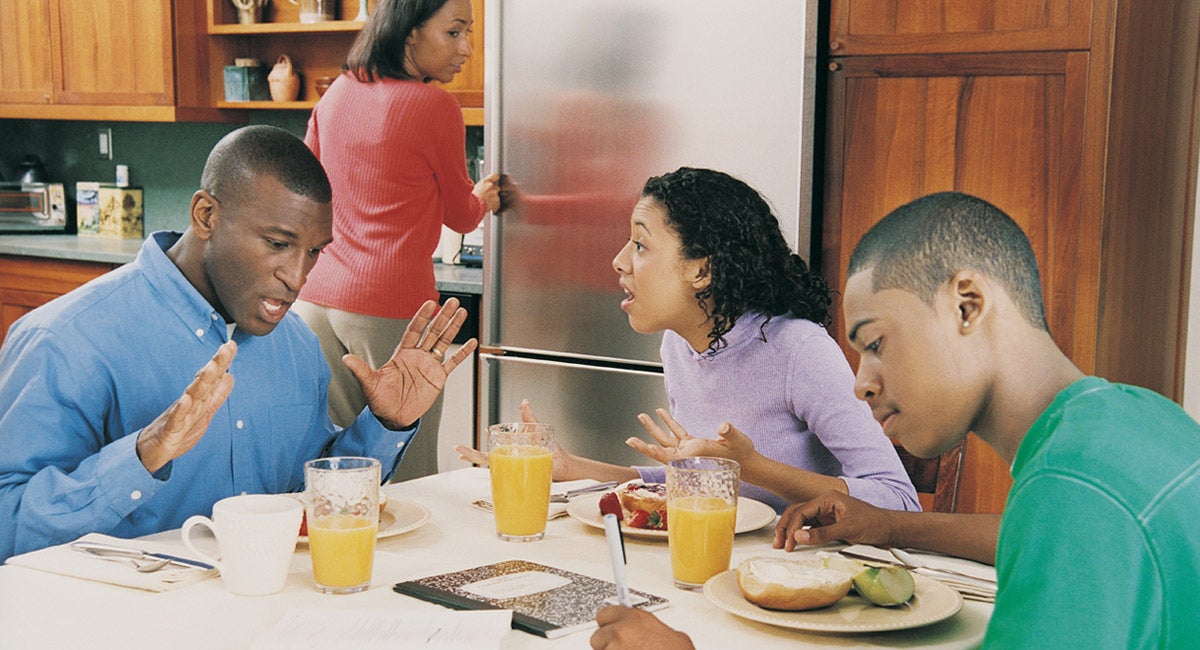 Hellinger "And in the middle it will become easy for you."
Hellinger "And in the middle it will become easy for you."
How to do? Introduce in turn mom, and then dad and pronounce the following text. Every word is verified in it. In a sense, this text can be a diagnostic tool: if some phrase causes rejection or a painful reaction, then this is where the splinter lies, this is the place of inflammation in the soul. I give this text, but I am well aware that very few people are able to immediately begin to perform this simple exercise. Because in its simplicity - a complete revolution of consciousness and life. You need great inner strength and a willingness to change to really make it happen.
Introducing Mom:
“Dear Mom, I accept everything you give me, everything, everything, whatever it is, I accept everything for the full price it cost you and it costs me. I'll create something for you to enjoy. It shouldn't have been in vain. I hold it tight and cherish it, and if I can, I will pass it on, just like you. I accept you as my mother, and you can have me as your child.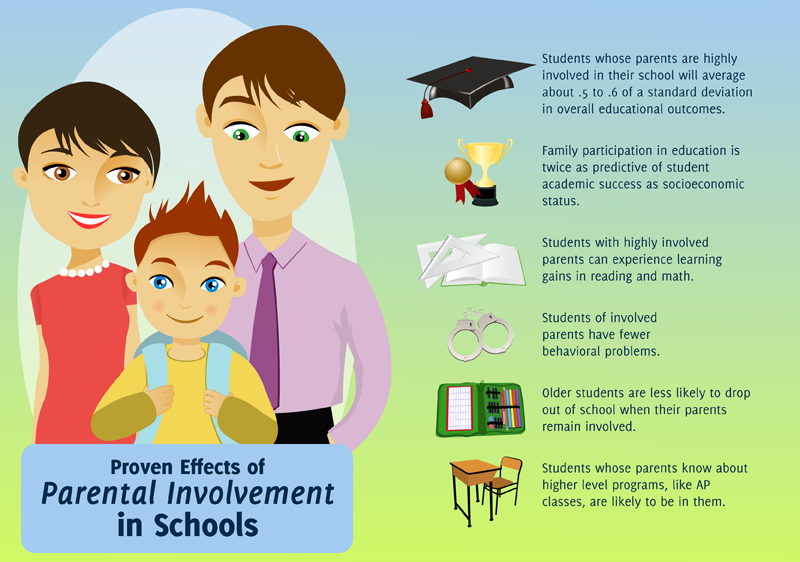 You are the one I need, and I am the child you need. You are big and I am small. You give, I take, dear mother. I'm glad you accepted dad. Both of you are the ones I need. Only you".
You are the one I need, and I am the child you need. You are big and I am small. You give, I take, dear mother. I'm glad you accepted dad. Both of you are the ones I need. Only you".
Then the same to the father:
“Dear dad, I accept everything you give me, everything, everything, whatever it is, I accept it all at the full price that it cost you and which costs me. I'll create something for you to enjoy. It shouldn't have been in vain. I hold it tight and cherish it, and if I can, I will pass it on, just like you. I accept you as my dad, and you can have me as your child. You are the one I need, and I am the child you need. You are big and I am small. You give, I take, dear dad. I'm glad you adopted your mom. Both of you are the ones I need. Only you".
German psychologists say that whoever succeeds in this step is in harmony with himself, he knows that he is the right person and feels whole.
How adult children react to problems in parental relationships and whether to intervene
September 8, 2021One on One Relationships
Disagreements between mom and dad will always hurt, and therefore you should pay more attention to your own feelings.
Share
0This article is part of the One on One project. In it, we talk about relationships with ourselves and others. If the topic is close to you, share your story or opinion in the comments. Will wait!
Many articles have been written about when it is time for parents to let go of their adult children and stop interfering in their lives. There are a lot of tips on how to help a small child survive the divorce of mom and dad. But almost nothing is said about what to do if you are 40, and your parents are getting divorced. And this can be just as painful as at 10.
Is it worth interfering when parents quarrel or break up? And how to live if you can't do anything? Lifehacker understands this complex topic together with psychologists.
Why we continue to be hurt by problems in parental relationships
It would seem that when we grow up, we should experience differences between mom and dad differently. It is understandable why they hurt a small child. Firstly, he does not have enough experience, and he perceives every quarrel as the collapse of the world. Secondly, everything happens literally before his eyes, he is directly involved in these events.
Firstly, he does not have enough experience, and he perceives every quarrel as the collapse of the world. Secondly, everything happens literally before his eyes, he is directly involved in these events.
An adult person lives separately and understands something about this life. And therefore, it seems like he should react more restrainedly. But parental difficulties and scandals still hurt and do not go unnoticed even for grown-up and completely independent children.
In my practice, I often come across the following request: “My mom and dad are getting divorced, why am I so worried and it hurts and feels bad, as if I’m six years old again and I’m watching their scandals?” Because parents will always be parents. And what happens to them and their personal lives will forever remain for us something very important and defining the family and our place in the family.
Marta Marchuk
practicing psychologist, Master of Psychology
Moreover, parental relationships continue to influence our lives much more than it seems. Sergey Alekseev, a psychologist and Profi.ru service specialist, notes that in childhood it is they who determine how we feel the world in which we grow up: reliable, prosperous and supportive, or vice versa - dangerous and unpredictable.
Sergey Alekseev, a psychologist and Profi.ru service specialist, notes that in childhood it is they who determine how we feel the world in which we grow up: reliable, prosperous and supportive, or vice versa - dangerous and unpredictable.
Starting to live his own life, a son or daughter carries away within himself the image of this world, the image of a strong home. If everything went well, then this is a great internal resource, a support that is always at their disposal.
Sergey Alekseev
psychologist
The more the image of the house is associated with a warm experience, the easier it is for the child to fly out of the nest, to take a difficult step into the world. And if later a crisis occurs in this “nest”, it will be perceived more adequately: “Parents are not only my mom and dad, but also a couple of adults. Their relationship has its twists and turns, difficulties, and sometimes they even end. I can worry about them, I can be very sorry if something goes wrong. But my image of a reliable world, formed in childhood, is with me forever. He is already a part of me, and the current relationship of the parents does not split him.
But my image of a reliable world, formed in childhood, is with me forever. He is already a part of me, and the current relationship of the parents does not split him.
Alas, not everyone is lucky to grow up in prosperity. And then the internal image of the house remains unfinished, unreliable. It requires constant investment to maintain this design. A person in such a situation can live with an eye on the experience in the parental family and perceive trouble in the relationship of parents as an attack on his "home inside". Because of this, there may be a desire to control them, to force peace or to care for "justice".
Is it worth it to interfere in the relationship of parents
Parents are usually advised to stop interfering in the lives of their children, arguing that the children have already grown up, and relationships between adults work on slightly different principles. Everyone is responsible for their own life and has the right to act as they wish. It also works in reverse.
It is important to remember that parents are two adults who decide for themselves what to do with their lives. This is the relationship between husband and wife, in which they themselves understand. At the same time, mom and dad will still be with the children, even if they are already adults.
Natalia Tormyshova
psychologist-psychotherapist
It is possible that parents, as in childhood, will pull an adult child to their side. Everyone will want to make him their ally in order to get help and support. But, unlike a child, an adult already has the resources and the ability to defend himself - not to be drawn into an undesirable situation, to protect his personal boundaries and save his nerves.
In such cases, I recommend talking to mom and dad and telling them the following: “You are my parents, I love you both. Therefore, I will not take sides with anyone, but will communicate equally with each of you, as before.
Marta Marchuk
According to Marta Marchuk, choosing sides is childish. It is worth cooling down your emotions and come to the understanding that the parents lived their lives together and each of them made a contribution to the current situation. Therefore, there is no unequivocal truth, no matter how they present it.
It is worth cooling down your emotions and come to the understanding that the parents lived their lives together and each of them made a contribution to the current situation. Therefore, there is no unequivocal truth, no matter how they present it.
Of course, there are exceptions to the rules.
It is worth intervening only in two cases: you have been asked to help, and both sides, or someone is in danger, and you know about it.
Natalia Tormyshova
How to cope with emotions
Of course, it's easier to say that it's better not to interfere in parental relationships than to do it. And it doesn't matter, in fact, whether you intervene or not. You may still feel anxious, scared, and hurt. Especially if mom and dad break up after many years of marriage.
Divorce of parents is stressful for a child at any age, especially if the marriage seemed happy. The picture of the world is literally collapsing. A person is faced with a reality that is imperfect, and sometimes frankly ugly. It frightens, drives into misunderstanding, sadness, sadness, melancholy appear. This is absolutely normal and understandable.
It frightens, drives into misunderstanding, sadness, sadness, melancholy appear. This is absolutely normal and understandable.
Natalia Tormyshova
It is with your emotions that you need to work. For example, dealing with guilt if it seems that you could have prevented a crisis and it's all happening because of you - adult children also have such experiences. But Natalia Tormyshova warns: "This is not so, do not take on a piece of responsibility that is not your own."
If you feel like intervening, ask yourself why you are doing it and what you hope to achieve. Sometimes this is the position of an immature person who is used to the world revolving around him and wants others to do as he likes. And sometimes it is an attempt to get a benefit, no matter how strange it may sound.
As a general rule, we only intervene in situations where we want emotional or monetary gain. The emotional benefit is not always recognized. A person gets used to saving others to the detriment of himself, but in this way he tries to gain recognition and love from others.
Natalia Tormyshova
To understand your emotions, you first have to name them, determine what you feel and why. Often, understanding the reasons already helps to calm down a little.
For example, your parents are getting divorced, you are scared and it seems that things will never be good again. But if you dig deeper, it turns out that you are afraid of something specific. Namely, that your relationship will not work out either, because the marriage of your parents has always been an example for you. After you understand this, perhaps the situation will no longer seem so frightening, because the fate of your parents' marriage in no way determines the fate of yours.
You need to be prepared for the fact that everything is much easier in words than it will be in reality, but it will most likely be difficult. Even if you do everything right, this does not mean that the pain will be removed like a hand. Therefore, if you feel that you are not coping, it is better to consult a psychologist.



